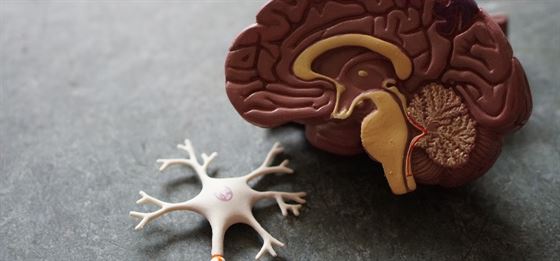
Supporting a loved one with OCD

Obsessive Compulsive Disorder is often portrayed in a comedic light on TV shows and in movies. However, it's a very real and often debilitating mental disorder which can be extremely difficult to live with. If your loved one has OCD, there are a few things you can do to help them manage their disorder and make life a little easier for both of you.
Understanding Obsessive Compulsive Disorder?
Obsessive Compulsive Disorder or OCD is a mental illness that affects about 1 to 2% of the population according to studies. People with OCD have intrusive, unwanted thoughts (obsessions) they feel they need to act on (compulsions). This can be very distressing and make everyday activities difficult. OCD can be mild, moderate or severe and its symptoms can vary from person to person.
What Are Some Common Obsessions and Compulsions?
There are many different types of OCD, but some common obsessions include:
- Fear of germs or contamination
- Fear of harm coming to oneself or others
- Intrusive, unwanted sexual or religious thoughts
- Excessive concern with order, symmetry or tidiness
Common compulsions include:
- Excessive hand washing or cleaning
- Checking things excessively (e.g. locks, appliances)
- Counting or ordering objects in a particular way
- Repeating actions a certain number of times
- Avoiding places or objects that trigger obsessions
If you live with someone who has OCD, you might be feeling overwhelmed. It’s important to remember you are not alone. Here are some tips which might help you to support your loved one and take care of yourself.
1. Educate Yourself
Misconceptions, myths and stereotypes about OCD can make it harder for people to understand and accept. Learning more about the disorder can help you be more understanding and patient. It can also help you to spot signs of OCD in yourself or other family members. The International OCD Foundation is a great resource for information and support. You can also find helpful books about OCD, such as The OCD Workbook and Brain Lock. If your loved one is comfortable with it, you could also ask them to explain their OCD to you. This can help you to understand what they are going through and how you can best support them.
2. Understand and Identify the Triggers
Obsessions and compulsions are often triggered by certain situations or objects. It can be helpful to try to identify what these triggers are for your loved one. Once you know what the triggers are, you can help your loved one to cope with them in a healthy way.
Triggers can be:
- Internal, such as certain thoughts or emotions
- External, such as certain people, places or objects
Some people with OCD might also have what are called “safety behaviors.” These are things they do to try to reduce their anxiety or prevent something bad from happening. For example, a person with OCD might avoid shaking hands because they are afraid of germs. While these safety behaviors might provide temporary relief, they can actually maintain and worsen OCD symptoms in the long run.
3. Be Patient
Remember your loved one is not choosing to have these thoughts or engage in these behaviors. They are stuck in a vicious cycle they can’t control. try to be patient and understanding. Avoid getting angry or frustrated. This will only make the situation worse.
4. Encourage Healthy Coping Mechanisms
Help your loved one to find healthy ways to cope with their obsessions and compulsions. This might include exercise, relaxation techniques or talking to a therapist. Avoid anything which might make the symptoms worse, such as alcohol or drugs.
5. Set Boundaries
It’s important to set boundaries so you don’t become too enmeshed in your loved one’s illness. You still need to live your own life and take care of yourself. This might mean saying no if you are asked to do something which makes you feel uncomfortable or puts you at risk. It’s absolutely fine to put your needs first sometimes.
6. Make Time for Yourself
It’s important to make time for yourself so you don’t get too bogged down in caring for your loved one. This might mean taking some time out each day to do something you enjoy or joining a support group for caregivers of people with OCD. Remember to take care of yourself both physically and emotionally. This includes eating a healthy diet, getting enough sleep and exercising regularly. It’s also important to find ways to relax and reduce stress. If you are feeling overwhelmed, don’t hesitate to reach out to friends or family for support
7. Seek Professional Help
Professional help can be sought for your loved one as well as for yourself. If you are feeling overwhelmed, you might benefit from talking to a therapist. There are also therapy options that can be done as a family. This can help to improve communication and provide support for everyone involved.
Living with someone with OCD can be challenging, but it’s important to remember you are not alone. There are many resources and support groups available to help you through this difficult time. With patience, understanding and self-care, you can get through this. By educating yourself about the disorder and seeking professional help when needed, you can make a world of difference in your loved one’s life—and yours.
Articles
Build your awareness and get inspired with our researched articles on how you can strengthen your well-being
Popular Topics
An OTP has been sent to the email address
provided.
Please check your Inbox and Spam folders.

What Would You Like to Speak with a Specialist About?
Mental Fitness Journey starts Now!
Chearful Connects you with Top-tier Qualified Wellness specialists for the Price of a cup of Coffee!

Next Steps
- A Client Team member will reach out to you to schedule a session with the most suitable specialist.
- You will receive an email with a 10% Discount Code* for your 1st session.
- We invite you to Explore the Platform & Sign Up today! *Upto a maximum of $10 discount on a session purchased




 3182 Read
3182 Read



.jpg)








.png)

.jpg)

.jpg)




.jpg)
































.jpg)

.jpg)

































